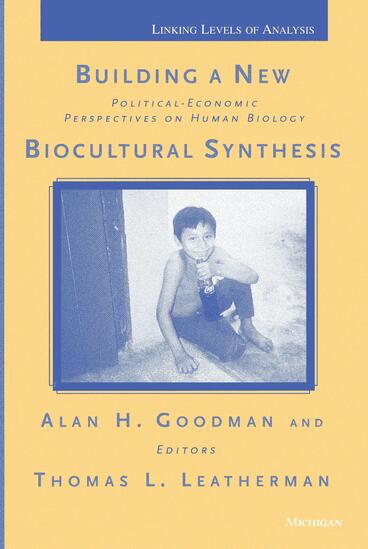Building a New Biocultural Synthesis
Political-Economic Perspectives on Human Biology
Shows the potential for a reintegrated, critical, and politically relevant biocultural anthropology
Description
Anthropology, with its dual emphasis on biology and culture, is--or should be--the discipline most suited to the study of the complex interactions between these aspects of our lives. Unfortunately, since the early decades of this century, biological and cultural anthropology have grown distinct, and a holistic vision of anthropology has suffered.
This book brings culture and biology back together in new and refreshing ways. Directly addressing earlier criticisms of biological anthropology, Building a New Biocultural Synthesis concerns how culture and political economy affect human biology--e.g., people's nutritional status, the spread of disease, exposure to pollution--and how biological consequences might then have further effects on cultural, social, and economic systems.
Contributors to the volume offer case studies on health, nutrition, and violence among prehistoric and historical peoples in the Americas; theoretical chapters on nonracial approaches to human variation and the development of critical, humanistic and political ecological approaches in biocultural anthropology; and explorations of biological conditions in contemporary societies in relationship to global changes.
Building a New Biocultural Synthesis will sharpen and enrich the relevance of anthropology for understanding a wide variety of struggles to cope with and combat persistent human suffering. It should appeal to all anthropologists and be of interest to sister disciplines such as nutrition and sociology.
Alan H. Goodman is Professor of Anthropology, Hampshire College. Thomas L. Leatherman is Associate Professor of Anthropology, University of South Carolina.
Alan H. Goodman is Professor of Anthropology, Hampshire College.
Thomas L. Leatherman is Associate Professor of Anthropology, University of South Carolina.

